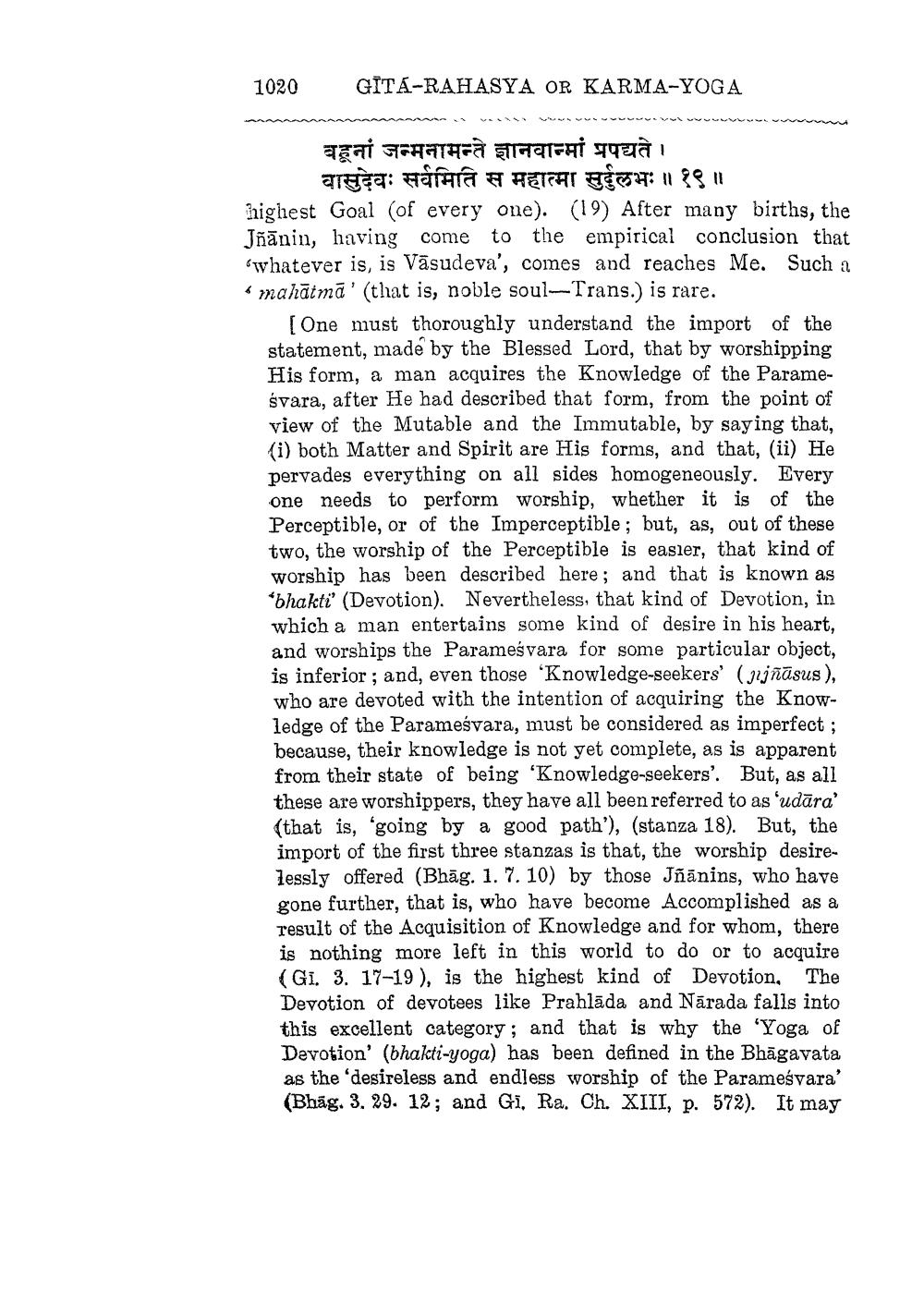________________
1020
GITA-RAHASYA OR KARMA-YOGA
*****.
बहूनां जन्मनामन्ते ज्ञानवान्मां प्रपद्यते । वासुदेवः सर्वमिति स महात्मा सुर्दुलभः ॥ १९ ॥
highest Goal (of every one). (19) After many births, the Jñanin, having come to the empirical conclusion that "whatever is, is Vasudeva', comes and reaches Me. Such a 'mahātmā' (that is, noble soul-Trans.) is rare.
[One must thoroughly understand the import of the statement, made by the Blessed Lord, that by worshipping His form, a man acquires the Knowledge of the Paramesvara, after He had described that form, from the point of view of the Mutable and the Immutable, by saying that, (i) both Matter and Spirit are His forms, and that, (ii) He pervades everything on all sides homogeneously. Every one needs to perform worship, whether it is of the Perceptible, or of the Imperceptible; but, as, out of these two, the worship of the Perceptible is easier, that kind of worship has been described here; and that is known as "bhakti" (Devotion). Nevertheless, that kind of Devotion, in which a man entertains some kind of desire in his heart, and worships the Paramesvara for some particular object, is inferior; and, even those 'Knowledge-seekers' (jūsus), who are devoted with the intention of acquiring the Knowledge of the Parameśvara, must be considered as imperfect; because, their knowledge is not yet complete, as is apparent from their state of being 'Knowledge-seekers'. But, as all these are worshippers, they have all been referred to as 'udära" (that is, 'going by a good path'), (stanza 18). But, the import of the first three stanzas is that, the worship desirelessly offered (Bhäg. 1. 7. 10) by those Jñänins, who have gone further, that is, who have become Accomplished as a Tesult of the Acquisition of Knowledge and for whom, there is nothing more left in this world to do or to acquire. (GI. 3. 17-19), is the highest kind of Devotion. The Devotion of devotees like Prahlada and Narada falls into this excellent category; and that is why the 'Yoga of Devotion' (bhakti-yoga) has been defined in the Bhagavata as the 'desireless and endless worship of the Paramesvara' (Bhag. 3. 29. 12; and G. Ra. Ch. XIII, p. 572). It may




